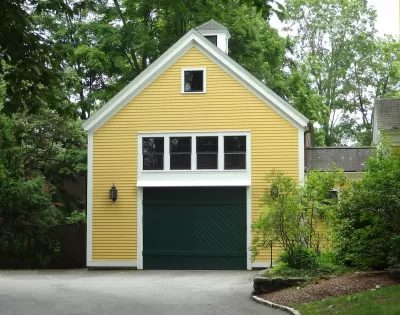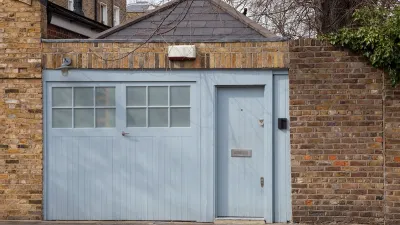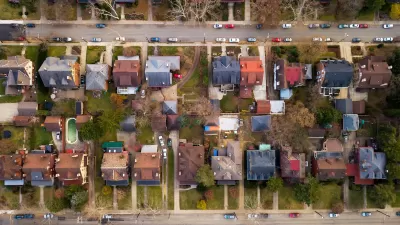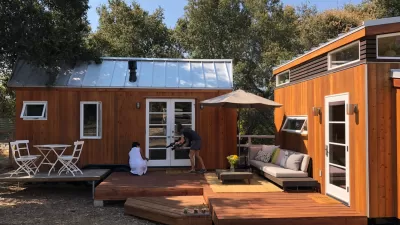One writer argues that backyard homes can hinder community-building and relegate some residents to the shadows.

In an op-ed in Next City, Travis Beck warns against the pitfalls of accessory dwelling units (ADUs), an increasingly popular way for cities to make way for ‘gentle’ density increases and more housing units.
Beck, who lived in a neighborhood rife with ADUs in Santa Cruz, California, argues that “Implemented at scale, … ADUs are a bad urban design solution. They disrupt the neighborhoods they are intended to preserve and can limit, rather than create, social opportunity.”
While ADUs can be relatively inexpensive and fast to build and can provide new housing in existing neighborhoods, Beck argues that “tucking more people into the backyards and former garages of a single-family neighborhood preserves the dream of homeownership for only a segment of the population, cuts off access to neighborhood life for the rest — and puts everyone in an uncomfortable arrangement.” For Beck, the nature of ADUs created “two parallel neighborhoods,” relegating some residents to the backyards of other homes without street-facing yards or porches, creating “limited opportunities for neighborly relationship building.” Beck does not address the possibility that the backyard tenants are elderly family members who may require care from adult children or young adult children who may not be able to otherwise afford housing in the same city or neighborhood.
Beck argues that “There are better ways to add density while building opportunity and the community life of neighborhoods,” recommending instead zoning changes that encourage other mid-density housing such as fourplexes or townhomes. For Beck, street-facing frontage seems to be the key to creating community, but how many residents of single-family neighborhoods don’t actually ever interact with their neighbors, regardless of the size of their porches or their closeness to the street? It should be noted that ADUs don't always mean backyard cottages. In some cases, ADUs are converted basements or garages located on the same plane, or even in front of, the ‘main’ house.
For Beck, good urban design means permitting multifamily housing and building more in denser, walkable parts of town. “Rather than pursue the seemingly easy option of permitting more ADUs, they should use the familiar built forms of denser neighborhoods to create housing and community for more of the population at the same time.”
FULL STORY: ADUs Can Help Address The Lack Of Housing. But They’re Bad Urban Design.

Montreal Mall to Become 6,000 Housing Units
Place Versailles will be transformed into a mixed-use complex over the next 25 years.

Planetizen Federal Action Tracker
A weekly monitor of how Trump’s orders and actions are impacting planners and planning in America.

DARTSpace Platform Streamlines Dallas TOD Application Process
The Dallas transit agency hopes a shorter permitting timeline will boost transit-oriented development around rail stations.

Dead End: Nine Highways Ready for Retirement
The Freeways Without Futures report describes the nation’s most promising highway removal proposals.

Congressman Proposes Bill to Rename DC Metro “Trump Train”
The Make Autorail Great Again Act would withhold federal funding to the system until the Washington Metropolitan Area Transit Authority (WMATA), rebrands as the Washington Metropolitan Authority for Greater Access (WMAGA).

Trump's “Able Bodied” Public Housing Limits Could Displace Over 300,000 New Yorkers
As part of 43% cut to federal rental assistance, Trump is proposing a two-year limit on public housing tenure for “able bodied adults.”
Urban Design for Planners 1: Software Tools
This six-course series explores essential urban design concepts using open source software and equips planners with the tools they need to participate fully in the urban design process.
Planning for Universal Design
Learn the tools for implementing Universal Design in planning regulations.
City of Mt Shasta
City of Camden Redevelopment Agency
City of Astoria
Transportation Research & Education Center (TREC) at Portland State University
City of Camden Redevelopment Agency
Municipality of Princeton (NJ)
Regional Transportation Commission of Southern Nevada





























